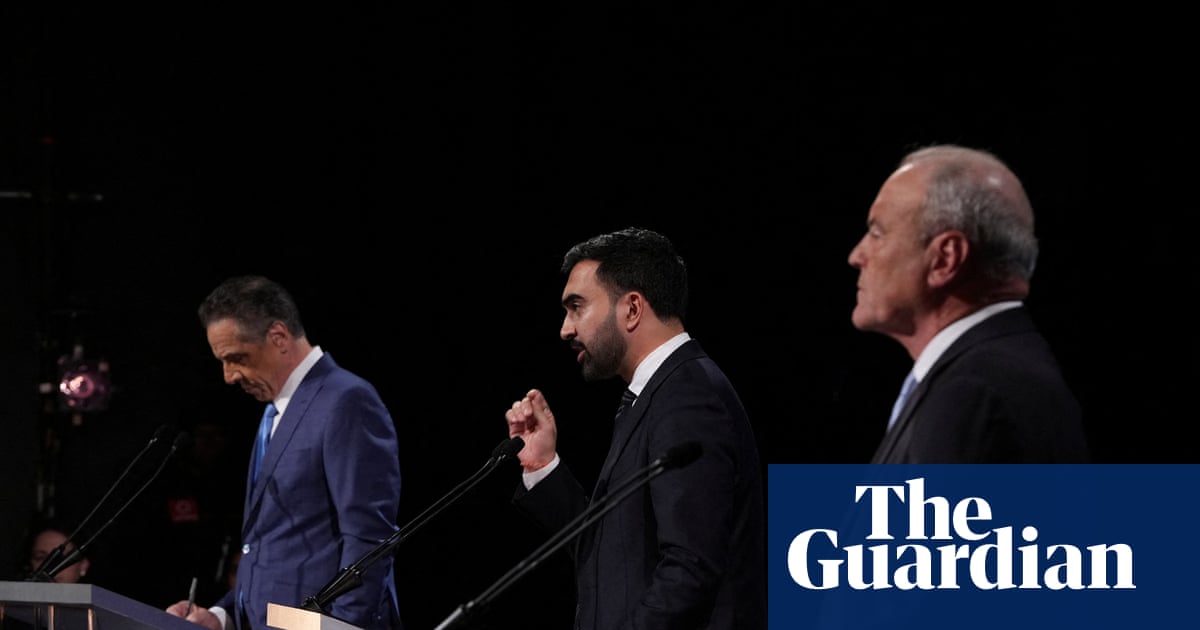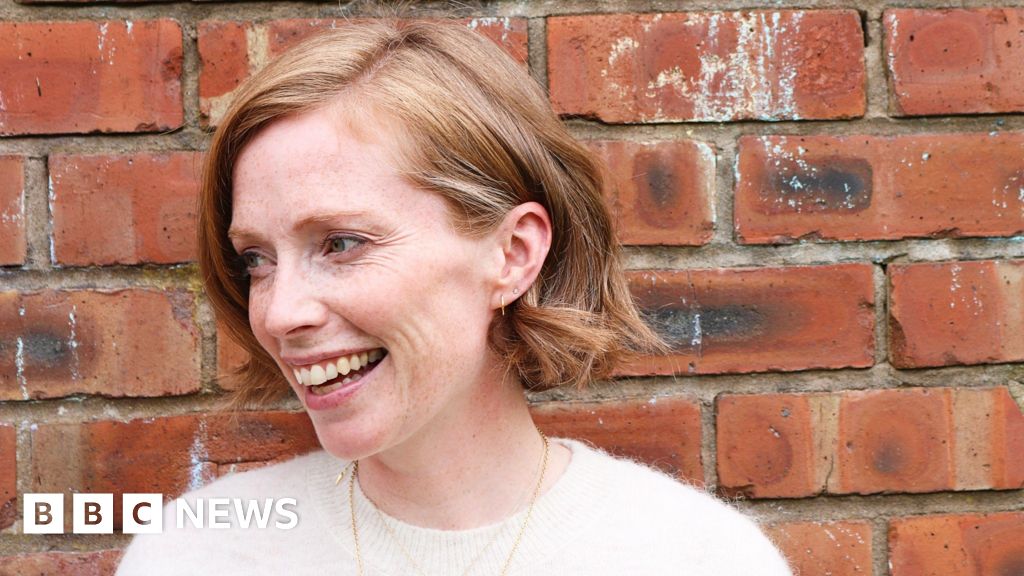Zohran Mamdani, the Democratic nominee and current frontrunner for New York City mayor, faced off with Andrew Cuomo, the former New York governor now running as an independent, and Curtis Sliwa, the Republican candidate, at the second and final New York mayoral election debate on Wednesday night.
Here are some key takeaways from the evening.
1. Tensions continued to rise between Cuomo and Mamdani
The debate made clear that the most heated rivalry was between Cuomo and Mamdani. From the beginning, Cuomo accused Mamdani of lacking substance and relying on recycled ideas from Bill de Blasio’s administration, claiming the Democrat “has no new ideas”.
Mamdani countered by arguing that Cuomo focused more on pushing other candidates to drop out than actually proposing solutions, while also pointing out what he called Cuomo’s failures as governor, including delays in housing initiatives.
The tension escalated midway when Mamdani was questioned on being evasive or unclear on his ideology. He blamed Cuomo for slow housing progress during his governorship. Cuomo snapped back that governors didn’t build housing, prompting both to start speaking over each other.
Later, Mamdani reignited the confrontation by directly questioning Cuomo about allegations of sexual harassment, asking:. “What do you say to the 13 women who you sexually harassed?” Cuomo dismissed the question as immature and insisted the cases were dropped, despite ongoing litigation. Their exchanges set the tone for a debate marked by personal attacks rather than policy clarity.
2. The recent ICE raids in New York resurrect last week’s conversation on Trump
Immigration and the recent ICE raids in New York were among the first issues raised, bringing Donald Trump back into the conversation in a major way. Cuomo said that ICE should not go after low-level offenses like street vending, and he would have personally called Trump to intervene and rein in federal agents. This provoked Mamdani, who accused Cuomo of being too cozy with Trump and labeling the former governor as “Donald Trump’s puppet”.
Sliwa, instead of outright rejecting Trump, said he’d negotiate with him to “get the best deal possible for New York”. The candidates then argued over who Trump supposedly supports. Cuomo claimed Trump wanted Mamdani to win so he could “come in and take over the city”, calling Mamdani “Trump’s dream”. Mamdani rejected the claim, saying it was part of Cuomo’s fear-based campaigning.
Ultimately, the ICE conversation quickly shifted to become a proxy battle over how each candidate would deal with Trump himself: either confront him or cooperate with him.
3. Sliwa threw out a handful of zingers, at both Cuomo and Mamdani
Much like last week’s performance, Sliwa offered brief moments of levity throughout – particularly whenever he served as the middle man between Cuomo and Mamdani. At one point, he referred to both men as “fighting like kids in a school yard”.
“Zohran, your résumé could fit on a cocktail napkin. And, Andrew, your failures could fill a public school library in New York City,” he said.
When Cuomo blamed rising homelessness on policies enacted after he left the governorship, Sliwa mocked him, saying: “You didn’t leave. You fled from being impeached.”
Regarding a potential endorsement from the current mayor, Eric Adams, Cuomo said yes; Mamdani and Sliwa said no. “Absolutely not, put that crook in jail!” said Sliwa.
4. The safety of Jewish New Yorkers becomes a topic of debate for the second time
The treatment and safety of Jewish New Yorkers became a major point of contention, especially surrounding Mamdani’s candidacy. Cuomo referenced a public letter signed by 650 rabbis accusing Mamdani of threatening “the safety and dignity of Jews in every city”. He accused Mamdani of enabling rising antisemitism and “stoking the flames of hatred against Jewish people”.
Sliwa went further, claiming Mamdani supports “global jihad”, a charge Mamdani firmly denied, saying: “I have never, not once, spoken in support of global jihad.” Mamdani argued the attacks were politically motivated and based on his identity as a Muslim candidate positioned to possibly lead the city. He defended his record and laid out plans to ensure Jewish safety, including expanding public school lessons on Jewish history and protecting Jewish children at schools and synagogues.
5. Mamdani was attacked by both Cuomo and Sliwa for evading questions
A recurring criticism aimed at Mamdani throughout the debate was his perceived tendency to dodge hard questions and give vague answers. This became most apparent when he was asked about education reform. He spoke about the importance of quality public education and improving literacy but did not outline a detailed plan.
When pressed on zoning amendments under the “City of Yes” reforms, Mamdani said he “has not yet taken a position” on them, which Cuomo and Sliwa used to suggest he avoided commitment on contentious issues.
Cuomo repeatedly accused Mamdani of lacking the knowledge or experience to govern, saying: “You don’t know how to run a government and you don’t know how to handle an emergency.” Sliwa joined in, saying Mamdani lives in “fantasies, not reality”, and dismissed his ideas like a $30 minimum wage and universal free buses as unrealistic.
6. The status quo ultimately did not shift
The 90-minute debate seemed unlikely to have changed the minds of voters as election day, which is in less than two weeks, comes closer.
Cuomo kept hammering home the point that his experience should make him the right choice, given his long career in government at the state and federal level, as opposed to Mamdani, the state assemblyman who is almost exactly half his age.
Mamdani, for his part, cast himself as the candidate of change, focused on affordability and trying to reverse a situation in which New York is becoming “a museum of where working-class people used to be able to live”.
Sliwa is an engaging presence on television, but did little to change the perception that he remains more of a quirky cultural figure than a likely government administrator.
Robert Mackey contributed reporting

 German (DE)
German (DE)  English (US)
English (US)  Spanish (ES)
Spanish (ES)  French (FR)
French (FR)  Hindi (IN)
Hindi (IN)  Italian (IT)
Italian (IT)  Russian (RU)
Russian (RU)  3 hours ago
3 hours ago
























Comments